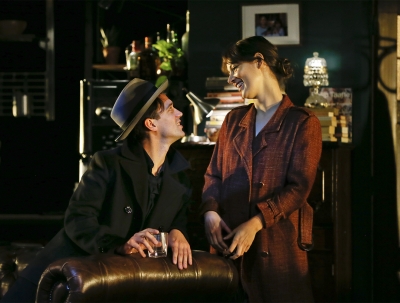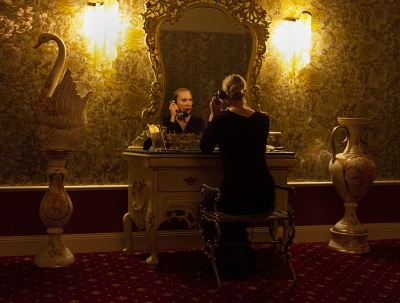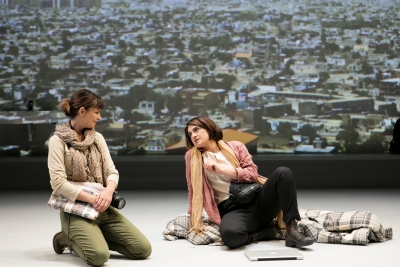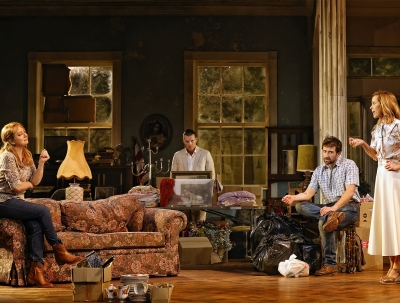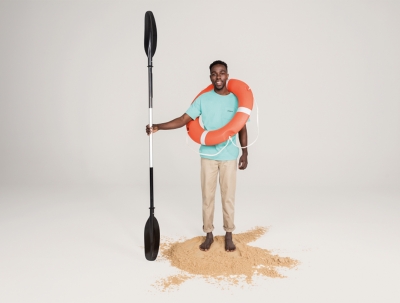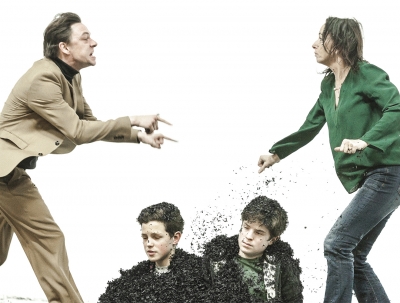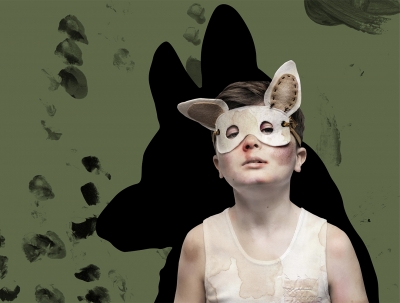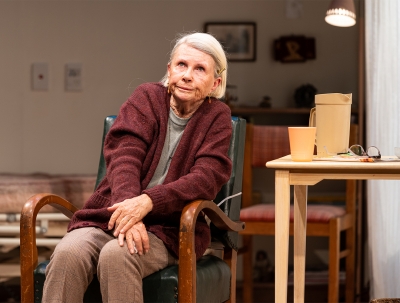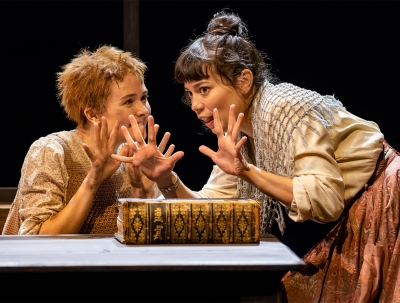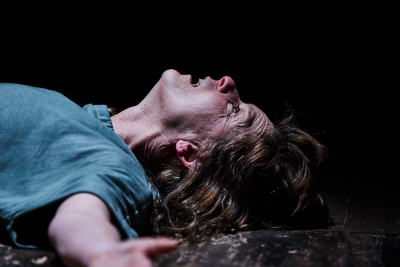Theatre
Berlin, by Joanna Murray-Smith, is an intense, very wordy, imperfectly plotted, but nonetheless stylish play. ‘Stylish’ is a strange word to describe a play about young love sabotaged by tragic secrets and the legacy of the Holocaust. Shouldn’t it also be ‘heart-breaking’, ‘harrowing’, or at least ‘poignant’? Perhaps, but ‘stylish’ is the right word for a play – a thriller, in fact – that is also a swiftly argued essay on the difficulties faced by sensitive and ethical individuals who want to free themselves from the snares of history to make a new future.
... (read more)It’s the 1980s. Elsinore is a logging town, ruled by troubled royals. The King is dead, Hamlet is paranoid, and Ophelia is having some very strange dreams. Beyond the palace walls, a carnival approaches, the workers are rebelling, and the forest has grown hungry. This is the world of Because the Night, Malthouse’s bold return to performance after the shutdowns of 2020.
... (read more)Picture this: it’s 7pm. The news begins. There’s the jingle, a few stories about Australian political goings-on, then a piece about a war-torn country overseas. What do you see? A foreign correspondent, flak jacket on, standing in a bombed-out street or a hospital ward full of bloodied bodies. They speak for a few minutes, describing the horror. The news moves on. We go back to our lives. But what happens next for the reporter?
... (read more)Picasso is supposed to have claimed that ‘good artists borrow, great artists steal’. The young American playwright Branden Jacobs-Jenkins does something slightly different. He, as it were, appropriates, taking well-known theatrical styles and adapting them to his own use. He gets old theatrical forms – the minstrel show in Neighbors (2010) or nineteenth-century melodrama in An Octoroon (2014), which this writer was fortunate enough to catch in New York, and explodes them to blisteringly funny effect. With Appropriate (first produced in 2013), he adopts that well-worn saga, the dysfunctional southern American family.
... (read more)Jali is a West African term for a storyteller – someone who can use words, music, or dance to make sense of the world for themselves and their audience. The young stand-up comic Oliver Twist, in his first theatrical piece, is proving himself to be very much a chronicler in that tradition.
... (read more)In her essay on Akon Guode, the thirty-five-year-old South Sudanese refugee who drowned three of her seven children in April 2015, Helen Garner recalls striking up a conversation with a VCE student about Euripides’ Medea. Garner tells the student, ‘She did a terrible, terrible thing. But she was very badly treated. She was betrayed.’ Before she can go on, the student interrupts her, flushing and leaning forward in her seat. ‘But she was – a mother.’ Garner writes of feeling troubled ‘by the finality of the word “mother”, this great thundering archetype with the power to stop the intellect in its tracks.’
... (read more)There is, somewhat surprisingly, a German connection in the otherwise resoundingly Irish The Boy Who Talked to Dogs, the State Theatre Company of South Australia and Slingsby Theatre Company co-production based on Martin McKenna’s memoir about his hardscrabble childhood in 1970s Garryowen. In both the book and the play, adapted by Irish playwright Amy Conroy, we encounter Martin (Bryan Burroughs) as a deeply troubled youth – the ‘smallest, weakest, and scaredest’ of a set of triplets – growing up with German emigrant parents.
... (read more)Who in their right mind would want to be running an international arts festival right now? Two months ago I was slated to review four Adelaide Festival shows for this publication. Due to Covid-19 travel restrictions, two were subsequently cancelled, including Anna Breckon and Nat Randall’s highly anticipated Set Piece. Co-artistic directors Neil Armfield and Rachel Healy must have been harried during the lead-up to the opening weekend, as national borders continued to snap open and shut like the jaws of a capricious crocodile.
... (read more)Ruth Park’s novels were as much about Sydney as the people who live there. In Park’s famous The Harp in the South trilogy, the slums of Surry Hills are almost as lively and characterful as the Darcy family, whose story it relates. In Playing Beatie Bow, the changing face of The Rocks underpins every part of the narrative.
... (read more)A low circular wooden walkway. A large canvas sack hanging from the ceiling. One sickening second to realise someone may be inside that sack, before it plummets to the ground. This is how Patricia Cornelius’s new play, RUNT, directed by long-term collaborator Susie Dee and starring another long-term associate, Nicci Wilks, opens: a thudding coup de théâtre that immediately establishes the work as incitement, as agitprop, as uncompromising sucker punch.
... (read more)

